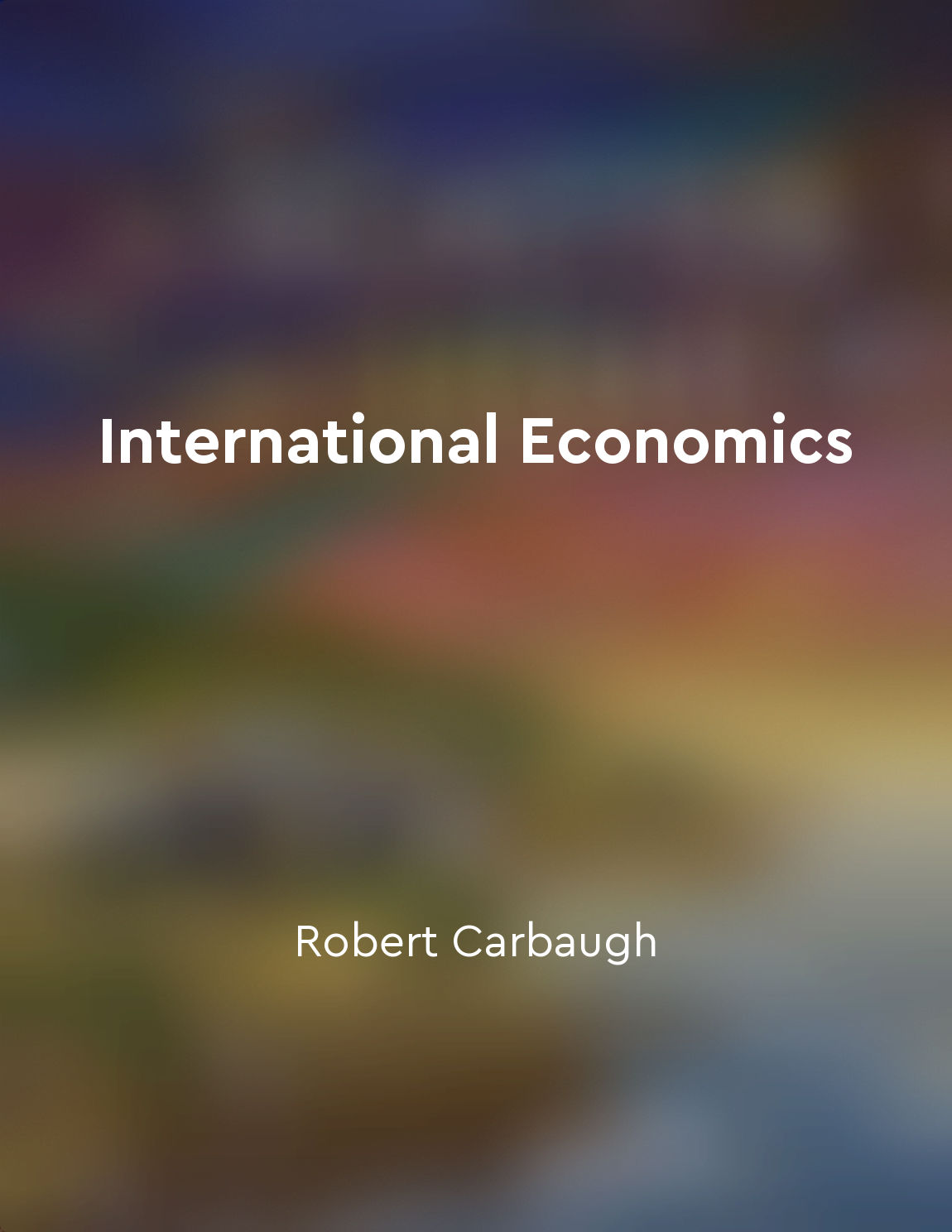David Ricardo's theory of comparative advantage revolutionized trade theory from "summary" of The Worldly Philosophers by Robert L. Heilbroner
David Ricardo, the British economist of Portuguese-Jewish descent, made a significant contribution to trade theory with his theory of comparative advantage. This theory fundamentally changed the way economists and policymakers thought about international trade. Before Ricardo, the prevailing belief was that countries should produce everything they needed domestically, to protect their industries and ensure self-sufficiency. However, Ricardo argued that countries could benefit from specializing in the production of goods in which they had a comparative advantage, even if they were not the most efficient at producing those goods. Ricardo's theory of comparative advantage is based on the idea that even if one country is more efficient than another in producing all goods, both countries can benefit from trade. This is because each country has a relative advantage in producing certain goods, even if it is not the absolute advantage. For example, even if Country A can produce both wheat and cloth more efficiently than Country B, it may still be beneficial for Country A to specialize in producing wheat, while Country B specializes in producing cloth. By trading these goods with each other, both countries can maximize their overall output and consumption. Ricardo's theory of comparative advantage revolutionized trade theory by demonstrating that countries do not need to produce everything domestically to benefit from trade. Instead, countries can specialize in the production of goods in which they have a comparative advantage, and trade with other countries to obtain goods in which they do not have a comparative advantage. This allows countries to maximize their overall output and consumption, leading to greater economic efficiency and higher standards of living.- Ricardo's theory of comparative advantage has had a lasting impact on trade theory and policy. It has shown that countries can benefit from free trade and specialization, even if they are not the most efficient at producing all goods. By understanding and applying the principles of comparative advantage, countries can maximize their economic potential and improve the welfare of their citizens.
Similar Posts
Foreign aid can assist in development efforts
Foreign aid, in the form of grants, concessional loans, and technical assistance, plays a crucial role in development efforts o...
Economic theories can be biased
Economic theories are often presented as objective truths, but in reality, they can be biased. This bias can stem from various ...

Tariffs are used to protect domestic industries
Tariffs serve as a means of shielding domestic industries from foreign competition. By imposing a tax on imported goods, govern...
Macroeconomics examines the overall economy
Macroeconomics, as a branch of economics, takes a step back to look at the bigger picture - the overall economy. Instead of foc...
Opportunity cost refers to the value of what is given up in order to choose something else
Opportunity cost is a fundamental concept in economics that plays a crucial role in decision-making. It refers to the value of ...
Communist countries prioritize collective ownership
Communist countries emphasize the idea of collective ownership, which is a central tenet of their economic systems. This means ...
Economic growth
The concept of economic growth is paramount in understanding the dynamics of a nation's prosperity. It is the engine that drive...
Trade fosters mutual understanding and cooperation
Trade is far more than the simple exchange of goods and services. It is a powerful force that brings people together, fostering...

Peace and cooperation became global priorities
In the early days of human history, nations were constantly at war with one another. Rulers sought to expand their territories ...
Technology has transformed the landscape of global commerce
The rapid advancement of technology has had a profound impact on the way global commerce operates. The rise of the internet and...

